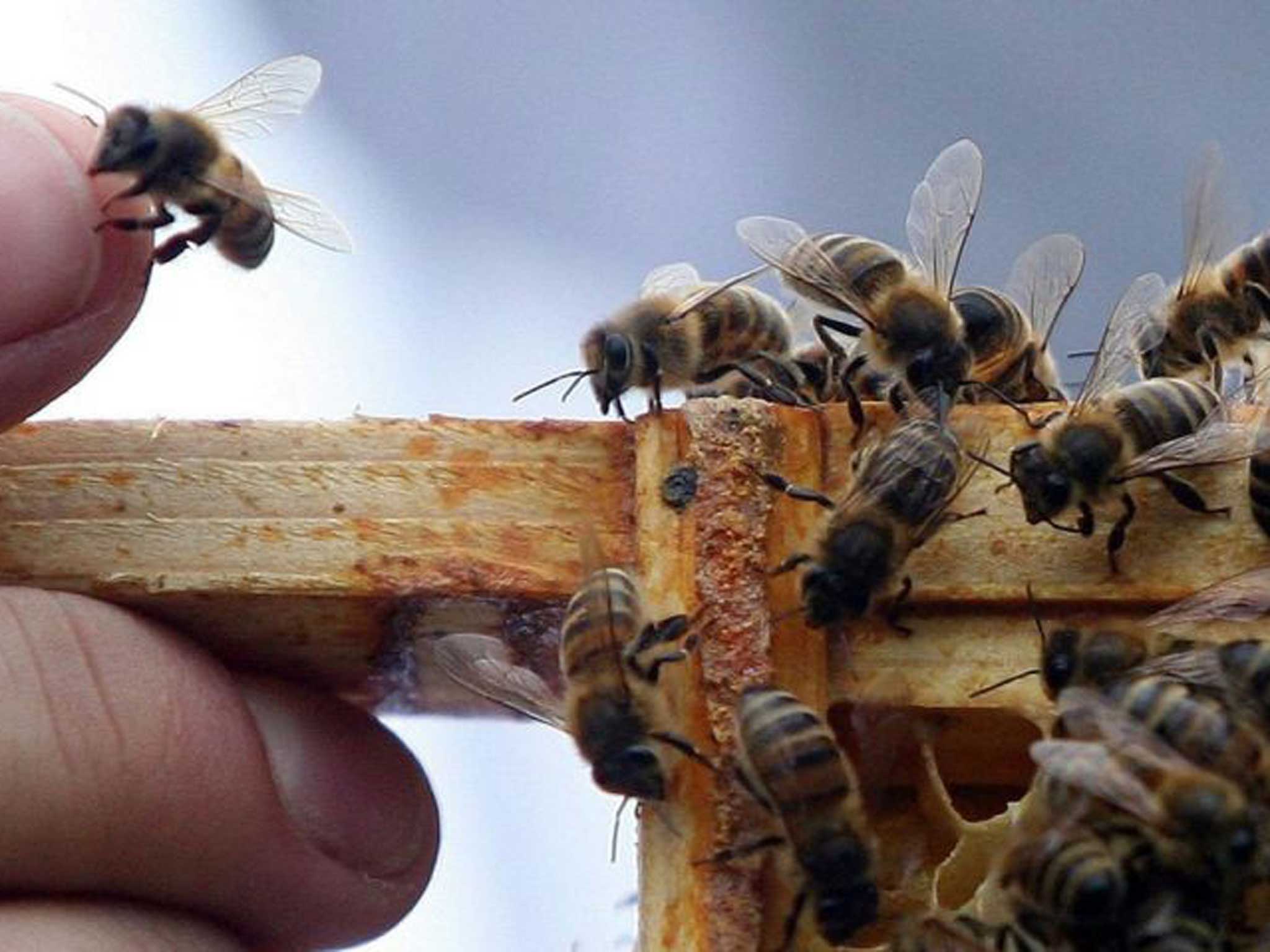To bee or not to bee is a worrying question
A new study says that far more honey-bees are dying in the UK and other parts of Europe than in Mediterranean countries

I may be biased but the sight of a baby bee emerging from its hexagonal cell, antennae quivering, is one of the sweetest sights I have seen. My passion for bees still strikes me as an unlikely one, arising from an eccentric wedding present given by a group of friends. When I say passion, addiction may be a more appropriate term. I now have six hives and a house filled with bee memorabilia.
This is always a nerve-racking time of year. In the spring you discover how many bees have survived the winter. It's the most dangerous time, as colonies shrink, making them more vulnerable to starvation and disease. Recently, though, thankfully, my hives seem on fine form.
If only that were the picture more generally. A new study covering 17 EU countries says that far more honeybees are dying in the UK and other parts of northern Europe than in Mediterranean countries. Nearly a third of all UK hives died out in 2012/13, putting bee mortality here second only to that of Belgium.
So what is going wrong here in Britain? Clearly, weather played a part last year. There has also been a serious loss of wildflower meadows since the Second World War, which restricts the range of plants available for the nourishment of bees. I have been planting a lot of borage this spring, which they love, but most old-fashioned cottage-garden plants will do the trick if you want to do your bit to help them. Then there's the nasty varroa mite, which sucks out a bee's blood, then spits it back in, complete with possible infections.
And then, of course, come pesticides. Last year, to the consternation of many environmentalists, the UK refused to join in an EU-wide ban on the use of four chemicals called neonicotinoids, used in some pesticides. But there is a heated debate over the chemicals' impact and many experts say further studies are needed.
In our TV series, The Wonder of Bees, Dr Jeri Wright attached tiny harnesses to the bees and then fed them doses of neonicotinoids, comparable to the dose they get in the wild. "At very low doses, which are found in nectar and pollen," she said, "neonicotinoids disrupt the way that the brain works and are affecting the reward system and the memory of bees. And that could have a profound effect on the nutrition of the entire colony."
But some scientists, such as Professor Francis Ratnieks of Sussex University, are more sceptical. He says "the data are not yet there" to prove that neonicotinoid insecticides damage bees, or their colonies, arguing that many of the doses used in studies are greater than what would normally be found in nectar and pollen.
This isn't some fringe issue that only affects beekeepers. British agriculture depends on many kinds of insects, including honeybees, to pollinate its crops. I for one can't imagine life without their blissful product, described by Virgil as mellis caelestia dona, the heavenly gift of honey.
Martha Kearney is presenting the TV series 'The Wonder of Bees' on BBC4 at 8pm on Monday nights
Join our commenting forum
Join thought-provoking conversations, follow other Independent readers and see their replies
Comments
Bookmark popover
Removed from bookmarks